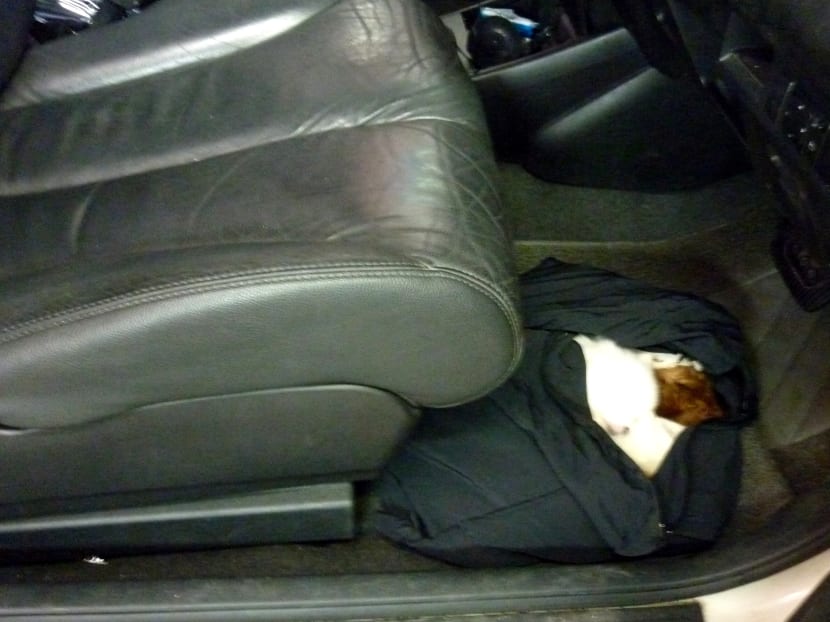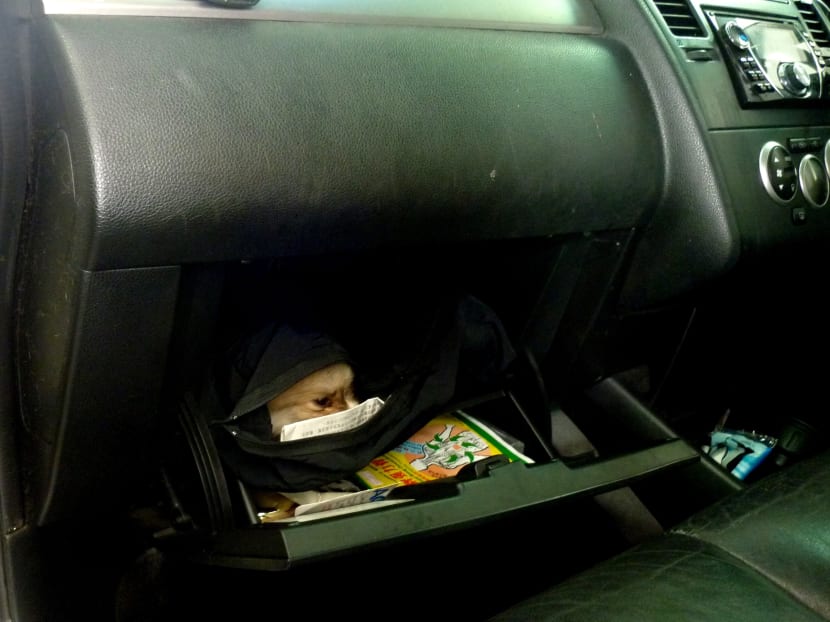13 puppies found hidden in car at Woodlands Checkpoint
SINGAPORE — A Singaporean woman was caught at Woodlands Checkpoint trying to smuggle 13 puppies into Singapore earlier this month.



SINGAPORE — A Singaporean woman was caught at Woodlands Checkpoint trying to smuggle 13 puppies into Singapore earlier this month.
The live puppies were found in three black cloth bags — hidden in the car’s glove compartment, front passenger seat and under the driver’s seat — when the Singapore-registered car was stopped for routine checks upon arrival at the checkpoint on Sept 9.
The case is currently under investigation.
In a joint release today, the Immigration and Checkpoints Authority (ICA) and Agri-Food and Veterinary Authority (AVA) cited the case and reminded travellers not to bring in live animals, birds and insects into Singapore without a proper permit. “Animals that are smuggled into Singapore are of unknown health status and may introduce zoonotic diseases, such as rabies, into the country,” said the authorities.
In addition to stringent requirements for the import of animals to keep rabies at bay, the AVA on Sept 9 conducted its first emergency preparedness exercise to test operational readiness to respond to a rabies outbreak. The exercise tested areas such as operational feasibility of rabies control policies and rabies operations support plans. The exercise was held in conjunction with World Rabies Day on Sept 28.
AVA also tested the activation and delivery of 5,000 doses of animal rabies vaccines from the OIE Regional Vaccine Bank for Rabies in Asia. The vaccines arrived in Singapore on Wednesday (Sept 17) and would serve as the local stockpile. “Should there be a rabies outbreak in Singapore; an additional 345,000 doses of animal rabies vaccine from the vaccine bank are available for rapid deployment to Singapore,” said authorities.
According to the World Organisation for Animal Health (OIE), there are more than 60,000 deaths from rabies annually due to exposure to rabies-infected animals.






